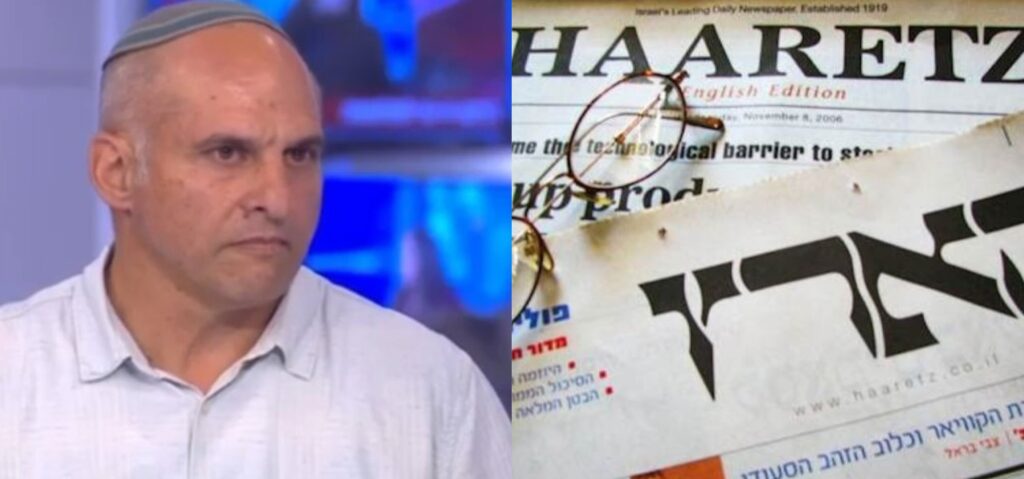The prosecutor in the case of a Yeshiva teacher accused of endangering the welfare of a child by grabbing him by the neck and dragging him up a flight of stairs has offered the teacher a deal in which he would avoid trial but would have to forfeit his teaching position – or any work at a school – for three years.
The deal was proposed in Ocean County court on Wednesday. It follows a July 10 hearing at which the prosecutor asked for additional time to determine that the victim’s family wasn’t being subject to “undue pressure or threats” from rabbis. If he accepts, the Hasidic schoolteacher who faces charges of abusing the 10-year-old boy will be admitted to New Jersey’s Pre-Trial Intervention program.
The defendant, Rabbi Mendel Furst, who teaches at a Satmar boys’ school in Lakewood, allegedly grabbed the child by the neck and dragged him up a stairwell, leaving scratches and bruising around his neck, according to a Lakewood police report from January.
Furst was seen in surveillance video committing the offense as a way of scolding the boy on Nov. 12, 2023, police said. He was charged with fourth-degree cruelty and neglect of a child.
In response to Shtetl’s request, the police only released heavily redacted bodycam videos of officers executing their search warrant, while neither prosecutor nor police would share the surveillance footage they obtained from the school. However, the attorney for the boy’s family wrote a memo describing what he saw in the school surveillance footage. A man’s “right hand was wrapped around the child's hand in a head lock,” the attorney, Terrance Turnbach, wrote. “At one point in time on the video, the child's feet are actually in the air while being restrained.”
“The child was visibly carried up the staircase in this manner while the Rabbi was chanting ‘What do you say to the wicked, there will be no peace to the wicked’ in Hebrew in a sing song chant,” Turnbach added.
In Ocean County criminal court on Wednesday, the prosecutor, Kimberly Carr, said that she and the alleged victim’s father supported pre-trial intervention, a program that allows defendants to avoid a trial, as long as Furst agrees to certain conditions.
Furst would have to avoid contact with the alleged victim and his family, go to anger management classes, and not work as a teacher or school administrator for three years. Furst’s attorney, Yosef Jacobovitch, said they needed time to consider the proposal; they are due back in court on Sep. 4.
But at the previous hearing, on July 10, Carr was reluctant to agree to PTI. She said that the victim’s father who had initially opposed Furst’s participation in the program “received phone calls from rabbis on behalf of this defendant inquiring as to the basis for his opposition to the program.”
The morning of that hearing, the father’s attorney told Carr the father had a “change of heart” and now supported PTI. The prosecutor was suspicious about this change and said she would evaluate further, before agreeing to the deal.
“I want to have an opportunity to make sure that that change of heart is not a result of undue pressure or threats that are coming on behalf of the defendant,” Carr said. “To not ask those questions, I feel, would not be doing my due diligence.”
In response, Jacobovitch said that any inappropriate calls made to the alleged victim’s father were not made from him. “There was absolutely nothing that was presented to the victim or his father that would make him change his position,” Jacobovitch said. “That definitely did not come from us. And if that was the case, you know, obviously we would apologize for that.”
The judge, Linda Baxter, then advised Jacobovitch: “I’m going to underscore what I know the state is going to say to you, which is that your client and you should both do whatever you can to make sure that third parties do not reach out to the alleged victim or his father, because that’s not helping.”
At the time, the judge proposed the next hearing be on Aug. 7, but postponed it to Aug. 14 after Jacobovitch asked to have it changed — likely because Aug. 7 would’ve fallen during the last nine days of the Three Weeks, a period between the fast days of Shiva Asar B'tammuz and Tisha B’av, which many Orthodox Jews consider an unlucky time.
Jacobovitch would not stop to talk to Shtetl’s reporter at the courtroom on Wednesday, and his law firm has not returned a call from Shtetl.




















